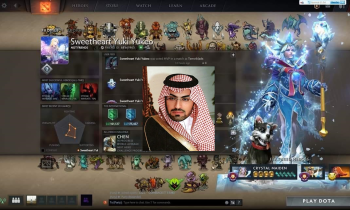The esports world has changed a lot in the last decade, going from a hobby for a few to a billion-dollar global phenomenon. The popularity of Esports can be attributed to multiple factors such as ideology, technological advancements, accessibility, and cultural acceptance.
Table of Contents
The Evolution of Esports

Esports, which is short for electronic sports, involves players from around the world competing in specific video games, either individually or with teams, in a regulated competitive gaming environment. It is a buzz word that started in Korea in the late 1990s and exploded into a global competition with massive live tournaments and millions of participants and fans. Some games like League of Legends, Dota 2, and Fortnite bring about high-stakes competition and million-dollar prize pools.
The global esports market size was estimated at USD 1.88 billion in 2022, growing at a compound annual growth rate (CAGR) of USD 26.8% from 2023 to 2030. This, combined with the rising number of live streaming providers offering a greater reach to audiences and a wider interest base, brought this growth. Streaming has played an essential role in tournaments and fan engagement globally, with major platforms like Twitch and YouTube Gaming.
Growing Revenue Streams
The esports revenue model is varied, with core streams including:
- Sponsorships: Large companies are pouring money into esports to get to young demographics that engaged in digital entertainment.
- Media Rights: The increasing viewership makes media rights worth more money, leading to lucrative deals with streamers and broadcasters.
- Merchandise Sales: Fans can spend quite a bit on team jerseys and collectibles.
- Ticketing: Large crowds seen in live events generate huge revenues for tournament organizers.
Cultural Influence and Career Paths
Esports goes beyond its initial nature as entertainment, now serving as a very real career choice for tons of people. Now, with universities opening programs dedicated to esports, aspiring gamers can stay in school and train. Lucrative gaming careers have gotten some buzz lately, with professional players making solid money from tournaments, sponsorships, and stream revenue.
Additionally, the cultural ramifications of esports are profound; they have united fans where they engage not just as spectators but as participants. Social media has made it easier for fans to reach out to players and teams and ensures the industry's continued growth.
Expanding Influence of Wagering in Esports
The esports’ betting market has been experiencing rapid growth, which can be attributed to the full-spectrum rise of esports; experienced and new bettors betting on their favorite teams. Also, this development increases citizens participation and generates millions in taxes not only for the government but also for the states in which the esports betting is legalized.
Regulating esports betting is beneficial in terms of budgeting for countries recovering from the pandemic, providing funding whilst offering consumer protection.
E-gaming tournaments have evolved into a multibillion business, fueled by advances in technology and social acceptance. As more fans want to bet on e-gaming, the integration of esports into the global entertainment field further highlights a bright future for the industry.










Comments